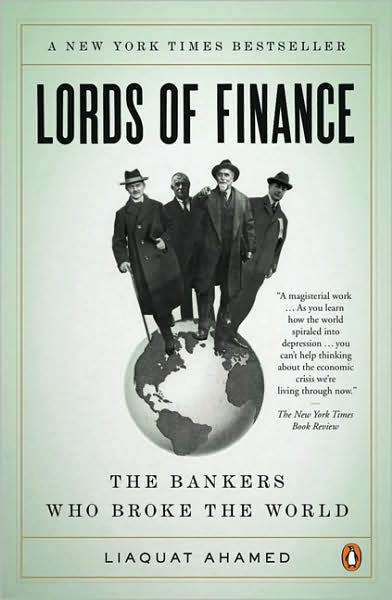Broker: “I’ve got a block of X Corp bonds offered cheap.? You interested?”
High Yield Portfolio Manager: “X Corp bonds are going to be downgraded by (S&P/Moody’s/Fitch — pick one or many) soon. We think the bonds have further to fall, but we will be interested after the downgrade.? It’s not a bad story, just a little misunderstood.”
Broker: “Gotcha.? I understand.? Call ya after the downgrade.”
HYPM: “Thanks.”
-==-=–==-=-=-=-=-=- Two weeks later, the downgrade happens -==–==-=-=–=-==-=-=-
HYPM: “Thought you were going to call me after the downgrade.? We are looking for bonds of X Corp.”
Broker: “Hey, been busy.? I would have called, but there aren’t any X Corp bonds to buy at levels you would have liked — the bonds are at least 0.30% tighter in spread terms than when I last called, and I’m not sure that I can produce bonds here.? Post-downgrade, holders are less concerned.”
HYPM: I guess many were waiting for the downgrade to buy.
Broker: Seems that way.? Ooh, gotta jump, see ya.
HYPM: Uh huh.
-==-=–=-==-=-=–==-=-=-=-=-=-=-=-=-=-=-=-=-=-=-=-=-=-=-=-=-=-=-=-=-=-=-=-=-=-=-
Broker: I’ve got a block of AAA GE finance debt at a tremendous spread to Treasuries.? Interested?
Investment Grade Portfolio Manager: Sorry, don’t own any GE Capital, not interested.
Broker: Why not?
IGPM: Guarantees are weak, and they are overly levered relative to their rating.? They always trade like a single-A, and for good reason.
Broker: That they do.? Catch ya later.
=-=–==-=-=-=-=-=-=-=-=-=-=-=-=-=-=-=-=-=-=-=-=-=-=-=-=-=-=-=-=-=-=-=-=-=-=-=-=-=-=-
Contrary to popular opinion, bond ratings are opinions, nothing more, nothing less.? In general, those opinions do not affect bond prices to any great degree, with a few exceptions.? Why?? Bond investors do their own due diligence, and do not depend on bond ratings for their analysis.? Only fools depend on bond ratings and that includes regulators, and those that buy CDOs.
We had a saying in our bond shop — Read the writeup, ignore the rating.? The writeup would contain all sorts of valuable data, which would sometimes be at variance with the rating — that variance is what is possibly most valuable about the rating agencies.? Analysts get to write, but they can’t independently choose the rating.? That is done by a committee, and so that changes slowly.
For a big question like the rating of the US Government, the language has been negative for a decade or more, ever since we went deep into permanent deficit mode.? The agencies would talk down the US in its verbiage, but still assign the AAA.? (By permanent deficit, I exclude the flows for the entitlement funds — we haven’t a surplus year in a long time.)
Some of that is size.? Rating agencies are reluctant to downgrade large entities, and often give a premium rating to large borrowers because they supposedly have more financing options.? More often the large borrowers get in over their heads because they can, partly aided by the ratings, and partly due to bond indexes giving them large weights because they are large.? (The indexes are right to do so, but the smart manager underweights the big names.)
Compare the US balance sheet and income statement, properly marked to market, and the downgrade should have happened a decade ago.? Smaller nations had similar balance sheets and income statements, and they were lower rated only because they were smaller.
But here’s the thing: the problems of the US are well-known.? Like bad accounting rules that analysts adjust for, the market has already digested the bad situation of the US.? As such, I am not worried about a downgrade.? Market prices incorporate a downgrade.
Now, downgrades occasionally make a difference where it forces institutions to hold markedly more capital, or when a large amount of buyers must sell. (“Our investment policy requires that we sell junk bonds.”)? But for large situations, often those policies get adjusted.? If policy would force large obviously noneconomic actions, odds are that the policy will be changed.? The US getting downgraded from AAA is one of those — too large to let policy remain static.? All of the Stable Value Funds that insisted on AAA will now insist on ratings as high as that of the US Government.
So I am not worried about a downgrade.? I am concerned about a default, though, for several reasons.
1) It leads to an increase in presidential power, because Congress gives up control of spending.
2) Hard to tell who will or will not get hurt.? I don’t think they will stop paying bondholders, but the second order effects of closing down large portions of the government are uncertain.? There are many areas of the US Government that we could shut down, and few would notice.
3) A? default is likely to be transitory, so any additional costs from the default will have to be made up afterwards.
But generally, a default will hit Americans that depend on the Government.? That’s where the penalties should go.? The Government offers no guarantees, entitlements can be altered with a vote of Congress, with the President not vetoing.? If you rely on the government to support you, you made a bad bet.
But that effect of non-payment is uncertain.? In a default, who knows who will get paid, or whether Obama decides to stiff all creditors, or all international creditors.? (Both not likely, but then who does get paid?)
Summary
I don’t think the actions of the rating agencies of themselves will create a problem for the US.? Default would be messy and lead to a great deal of uncertainty.? A lot would depend on how the US Treasury reacts.
PS — maybe we have one more month to haggle over?
PPS — What do we do about growing FHA losses?



